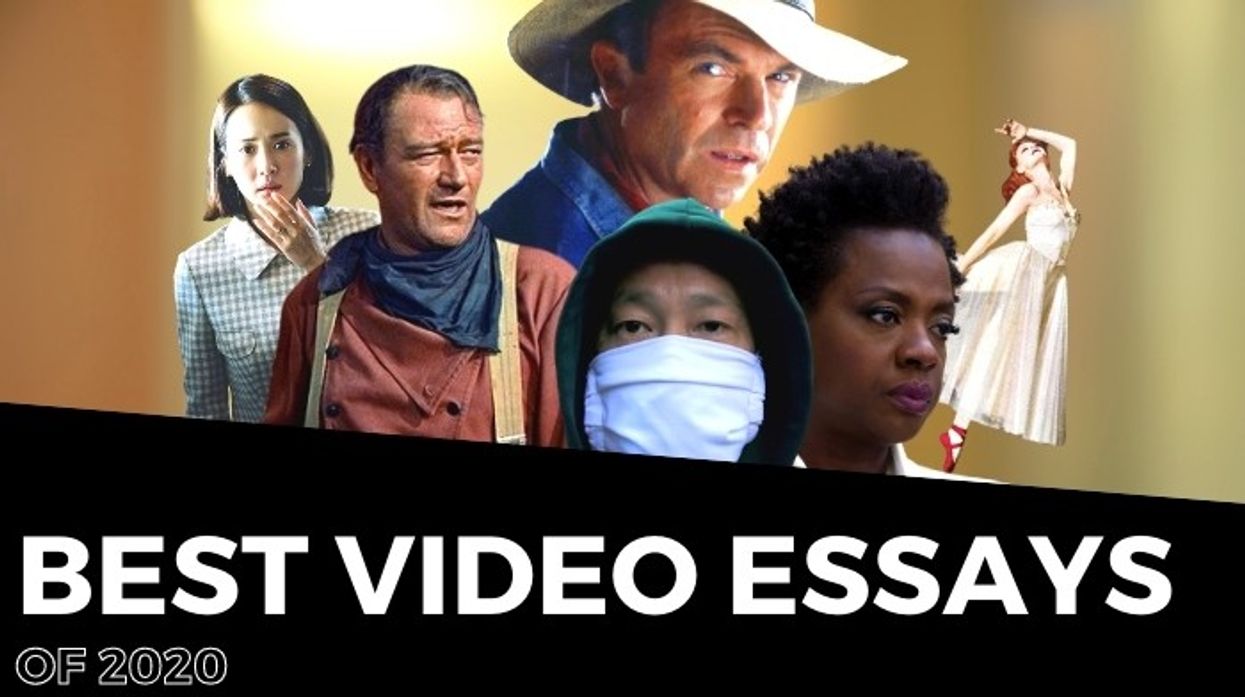
As you might be able to tell from the name of this blog, we believe educating yourself on everything that has to do with film doesn't require sitting in a crowded auditorium on some college campus somewhere. In fact, some of the best breakdowns of history's best films are sitting there on YouTube next to cat videos and TikTok fail compilations.
So, the No Film School staff came together to make this mega-post of our favorite and most memorable video essays of the year, including an explainer on Parasite's puzzling ending, a celebration of everyone's favorite film about dinos and theme parks, and an extremely personal and truly heartbreaking piece from one of the most notable video essayists today, Kevin B. Lee.
Check them out!
The Controversy Behind David Fincher's Mank—The Royal Ocean Film Society
I think this essay by The Royal Ocean Film Society gave me a ton of information about old Hollywood, film criticism, and made me appreciate the David Fincher movie all the more.—Jason
Parasite, Ending Explained: Stairway to Nowhere—The Take
We all had questions about the ending of Parasite, but no one put all the theories together like The Take. That’s why I found this to be essential viewing.—Jason
Jurassic Park: A Perfect Movie?: The Good, The Bad & The Brilliant—Wisecrack
The answer is yes, and this video by Wisecrack reminded me of how formative this film was for me. Did I want to be an archaeologist in second grade because of Dr. Grant? Maybe. But as a writer now, I’m still learning from Jurassic Park.—Jo
Oops! Disney’s Cars Did Eugenics—Jack Saint
I’m a big fan of Jack Saint’s analyses of what seem like simple kids’ films and their deeper, more disturbing storytelling issues. If you’re a writer or just a fan of movies, his videos are a good place to start pinpointing problems you might not have realized were there to begin with.—Jo
36 Westerns Timed to First Gunshot—Entertain the Elk
To me, there is nothing more cinematic than the Western genre. This experimental video essay by Entertain the Elk syncs the gunshots of 36 different classic westerns. I feel a swell of emotion just watching them come together… reliving these various shoot outs… moments… witnessing in real-time how the shootouts build upon one another in visual grammar. What are you waiting for? DRAW!—George
https://www.youtube.com/watch?v=COOEucHgJNU
How The Nerdwriter Writes a Video Essay—Why It's Great
What's that old saying? "Those who can't do, teach." So, what does it say about me that I'm teaching you about a video essay that teaches you how to do a video essay that teaches you about films? I'm not sure I know... but what I do know is that I'm obsessed with video essays and no one does them better than The Nerdwriter... and no video has broken down his process better than this one from Why It's Great.—V
Why Did Ozu Cut to a Vase?—The Nerdwriter
Ah... the Ozu Vase. This thing has become quite the cinematic mystery, with scores of film scholars, theorists, and filmmakers laboring to explain director Yasujirō Ozu's use of it. The Nerdwriter offers up several explanations from the most notable among them, including screenwriter Paul Schrader, who believes the vase depicts stasis and thus forces the audience to reach deep levels of contemplation, film scholar David Bordwell, who says the shot of the vase allows us to view the moment from different angles, and film critic Shiguéhiko Hasumi, who reveals that the vase shot is not actually about the vase itself but about the passing of time, which forces us to experience, as The Nerdwriter puts it, "the vanishing of ourselves."—V
Once Upon a Screen: Explosive Paradox—Kevin B. Lee
I saved my favorite for last. Kevin B. Lee has been teaching us about cinema through his video essays for the better part of a decade, so you could say, in a way, anyone who watched his work through the years might feel as though he's helped them reach new levels of maturity in the way they analyze film. That's why this video is so heart-wrenching. Lee lets down the shield that scholarly film analysis often affords us to reveal how watching Platoon at a theater in his hometown changed his life and affected him as a child. Essentially, we learn about the film not through the authoritative voice and cold analysis of an expert, but through the searing recollections and vulnerable exposition of a human being.—V
What were your favorite video essays of 2020? Let us know down in the comments!
Still feeling nostalgic about 2020? Then check out the rest of our Year in Review 2020 coverage for more of our top picks, industry trends, and end-of-year takes.











